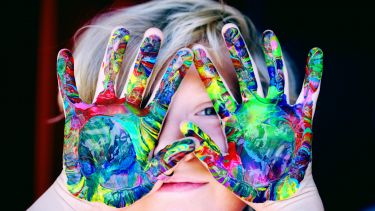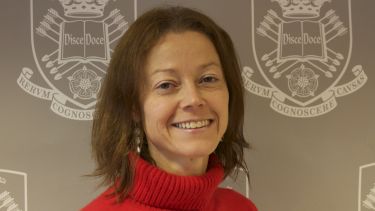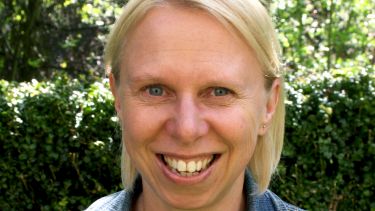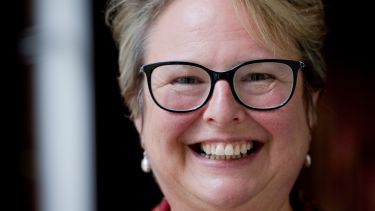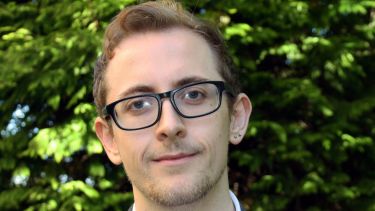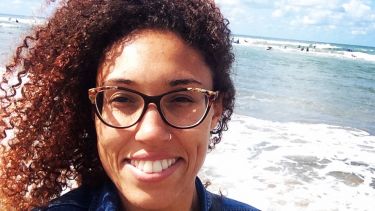This Friday (20 November 2020) is UNICEF’s World Children’s Day; an annual day of action for children, by children. To mark this annual event, we are shining a light on the variety of research taking place by academic staff and PhD students in the Department of Sociological Studies, to reimagine a better future for every child.
As a working group leader for the European Family Support Network, currently funded by the European Cooperation in Science and Technology (COST) scheme, Harriet Churchill is leading a review of European-level policy frameworks for promoting children's rights, child welfare and family support principles and provision across European countries. The review will be published in Spring 2021.
Jo Dillon’s research project is based on two findings from her PhD research. Firstly, there are clear gaps in children's understanding of their own child protection planning. These gaps impact on children's ability to be listened to, to give opinion on social work intervention, and to take part in the decision-making process. Secondly, s.53 (Children Act 2004) states that social workers should “ascertain the child’s wishes and feelings regarding the action to be taken with respect to him”. The term 'wishes and feelings' is used daily in social work practice, with practitioners focusing on whimsical and desire-focused recording rather than exploring children's opinions of the impact of social work intervention. It has become a buzzword, or a command 'to do', rather than a continuing cycle of participation.
Jo was contacted by a North West local authority to provide training for their social workers on 'wishes and feelings'. Working in collaboration with the local authority and a local artist / youth worker, Jo launched a new project focusing on innovative social work practice, that encouraged social workers and children (on child protection plans) to co-produce bespoke resources that can help children understand their own child protection process. These resources would be unique to the child and remain with the child to inform them and reassure them.
Jo said: “Ten social workers from the LA attended an initial training day where we thought about games, materials, activities, textures, photographs and stories that may help their children understand their child protection plan and be part of the decision-making process. Whilst the project has currently been halted due to COVID-19, we intend to hold an exhibition of the resources produced and obtain social worker feedback on the process.
“The final step will be to produce 'good practice' guidance in conjunction with the local authority, to further guide their social workers.”
Professor Kate Morris and Dr Calum Webb
Professor Kate Morris and Dr Calum Webb are working closely with local authorities and national organisations to reduce inequalities in child welfare interventions. The Child Welfare Inequalities Project, a research collaboration between several universities funded by the Nuffield Foundation, found that children in the poorest neighbourhoods were significantly more likely to be living in out-of-home care or placed on child protection plans; more than ten times as likely than children in the least deprived neighbourhoods in England. Their recent research also found that these inequalities are exacerbated for some ethnic groups, and in contexts of high income inequality. Professor Morris, with Professor Brid Featherstone from the University of Huddersfield, has been working with local authorities to help them use this evidence to inform policy and practice through a social model of child protection. In August 2020, Dr Webb relaunched the Child Welfare Inequalities Project App, designed to give the public quick and easy access to data visualisation of hundreds of trends in children’s services from publicly released data.
Christie is a PhD student in the Department and her research, a collaborative ESRC PhD project with the Race Equality Foundation that is funded by the White Rose Doctoral Training Partnership, is titled; ‘Hearing children and young peoples’ voices on parenting and family life.’ Professor Sarah Salway and Jabeer Butt (Chief Executive at Race Equality Foundation) developed the original idea for this PhD studentship after working together on previous projects addressing health
inequalities. Christie’s research aims to explore the experiences of a parenting programme called ‘Strengthening Families Strengthening Communities’ from the perspective of children and young people. First developed in the USA by Marilyn Steele, Strengthening Families Strengthening Communities is designed to be an inclusive approach to working with marginalised communities. The programme has been adapted by the Race Equality Foundation and is currently delivered across England. Over the years, Strengthening Families Strengthening Communities has consistently received positive feedback from parents, many of whom go on to become programme facilitators, but there has been growing recognition that feedback from children and young people is not adequately captured. When it comes to parenting programmes and family interventions, it is often the case that despite being the main beneficiaries, the views of children and young people are largely neglected in this area of policy and practice. To shed light on what impact these programmes have on children and young people, this PhD project uses participatory approaches to explore experiences, and co-produce new ways of asking for feedback from young people.
Christie said: “Over October half-term, we started the exciting first phase of the research: an online Young Persons’ Advisory Group in collaboration with the Race Equality Foundation and colleagues at UCL. We heard from a diversity group of young people from across the country. They shared their fantastic ideas on how to engage young people in this research, and gave insights on the key issues in parenting and how Covid-19 is impacting the lives of young people and families.
"This was a lot of fun and generated some great discussions. Their invaluable feedback will shape the next phases of the PhD research."
If you’d like to find out more or discuss similar projects please email Christie: cgarner1@sheffield.ac.uk.

